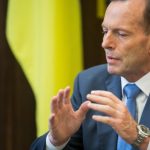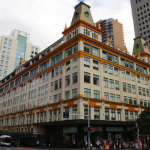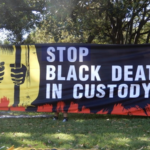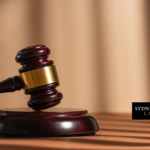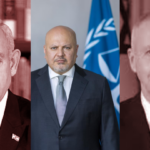Punishing Asylum Seekers: An Interview With Refugee Action Coalition’s Ian Rintoul
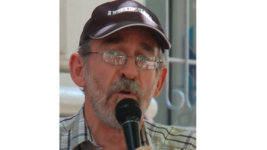
Australia ratified the UN Refugee Convention in 1954. But, despite the country having formally agreed to the terms outlined in the international agreement that protects refugees, the Turnbull government continues to deny people seeking asylum the basic rights the document establishes.
Under article 31 of the Convention, nations that are a party to the treaty cannot punish people for seeking asylum. But that’s exactly what’s being done to the detainees held in this country’s offshore detention centres.
According to Department of Home Affairs figures, there were 255 people, including 22 children, being detained in the Nauru Regional Processing Centre in April. There’s also still around 500 men left housed in three transit centres on Manus Island.
All these people have been held in detention for around five years now.
A callous denial
As the Australian government refuses to allow these offshore detainees into the country, it struck a deal with the Obama administration in 2016 to resettle them in the US. However, as of late May, only 103 refugees from Manus Island and 162 from Nauru have been resettled in the States.
And although home affairs minister Peter Dutton has admitted the government has no other options of where to send people that the US doesn’t accept, the prime minister has flat out refused an offer from New Zealand to resettle 150 of the men on Manus Island.
A remote concentration camp
Meanwhile, Christmas Island Detention Centre is still operational, even though the government has made repeated announcements that it will be closed down due to the dwindling amount of detainees held there. As of April, 304 men continued to be held within its confines.
The centre on the remote island has been run by British private contracting company Serco since 2009. And during its time in operation, reports have emerged about the deplorable conditions at the centre and its use of military-style security.
On 29 May, a four day rooftop protest at the detention centre was brought to an end. Two Iranian demonstrators, one who has been in detention for six years and another for three, took to the roof of the centre’s Green 1 compound to protest the conditions they have to endure.
Following the protest, the two men were taken to a punishment compound called White 1. Serco security guards also arrested other detainees, who’d been supplying the protesters with water and medicines. These men were also sent away to be punished.
Asylum seeker rights
The Refugee Action Coalition (RAC) Sydney advocates for the rights of refugees seeking asylum in this country. The grassroots coalition holds an open meeting every Monday evening at the Teachers Federation Building in Surry Hills.
RAC spokesperson Ian Rintoul has been at the forefront of the refugee rights movement since the coalition was established in 1999. He’s been tirelessly getting the message regarding Australia’s treatment of asylum seekers out there.
Sydney Criminal Lawyers® spoke to Mr Rintoul about why the Christmas Island facility is still of importance to the government, the conditions the men on Manus Island have to bare, and how the government is continuing to shirk its international obligations.
Firstly, the government has been talking about closing down the Serco-run Christmas Island detention centre for years now.
Ian, why is Christmas Island still operating? And what are the conditions like in that detention centre?
It’s still operating because it is the punishment centre of Australia’s detention regime. They’ve been many times that they’ve said it’s going to close. And it hasn’t been closed even though there’s capacity in the other detention areas.
So, it’s a place of convenience. And it’s remote, so it’s inaccessible and unaccountable. The contact between the detainees who are held there and the outside world is minimal. It’s maximum control by the immigration department. And as I said, it’s used as a punishment centre.
The conditions are extremely harsh. They’re far worse than prison and it’s run on a behavioural management scheme.
People are placed in White 1 when they’re sent to Christmas Island. It’s effectively solitary. And they operate on that behavioural management scheme to establish behavioural compliance.
People are put in solitary, then after a period of time, they may be allowed to have a phone call, use a computer or have minimal contact with other detainees in White 1.
Then they progress through White 1, through a series of behavioural management processes, as a way of establishing behavioural compliance inside the detention centre.
Serco guards at the centre can actually carry out arrests. What’s the extent of the powers these guards from a private company have?
They literally have untrammelled power. People can be arrested, handcuffed, placed in solitary, and have their privileges removed, like activities, education and phone access.
Detainees can be moved arbitrarily from detention centre to detention centre. In a place like Christmas Island, they can strip them and place them in solitary confinement. And handcuffing is routine, even in detention centres on the mainland.
In Christmas Island, they have White 1 and Red compounds, which are established as punishment compounds.
On 22 May, a 52-year-old Rohingya asylum seeker called Salim died after throwing himself off a bus on Manus Island. He’s the third asylum seeker to have committed suicide on the island in the last 12 months.
In your opinion, does the Turnbull government have blood on its hands because of these suicides?
There’s no doubt. They’re responsible for the deaths. And it’s not just the suicides. It’s also medical deaths. And the responsibility for those deaths is with Turnbull and Dutton. They literally have blood on their hands.
They created the circumstances. They’ve robbed people of their mental health and done nothing to assist them. They’ve effectively handed them the rope in some circumstances that has ended their lives.
The Australian government shutdown the Manus Island detention centre on October 31 last year.
And after a three week standoff, where detainees refused to leave the centre for fear of their safety, they were all relocated to transit centres in Lorengau. And the majority of these men are still there today.
What sort of conditions is the Australian government subjecting these vulnerable people to at present?
The strange thing is the conditions are worse than what they were in Lombrum in the naval centre.
They’re now in three compounds in East Lorengau, which were established very hastily. They’re all fantastically overcrowded, so there’s not enough places for people and activities. Educational and recreational activities have all been reduced.
The aspect which is most noticeable, is the decline in the health facility. So, there’s now simply a small clinic that operates in East Lorengau, but it only operates in daylight hours.
People are expected to access the Lorengau hospital, which is a hospital in name only. It doesn’t even have the facilities sufficient to cater for a level of healthcare for the Manusians themselves, let alone the circumstances of the refugees and asylum seekers, who are in those other compounds.
There are now no specialised mental health facilities for those people. So, the medical assistance is less than what it was previously.
The US relocation deal is underway. A little over 260 people have been sent to the United States.
How effective is the US relocation deal?
The US deal has always been flawed, even when they talked about it being fulfilled in full. They talked about 1,250 places in the US deal, but that was already something like 600 less than the number of refugees there were on Manus and Nauru.
They made no provision for the hundreds of people who have elected not to be resettled in the US or who, at the moment, have been rejected in the refugee determination process on those two islands or have not been determined. So, it was always flawed.
Now it’s wholly questionable, because this year it’s become very clear that the Trump administration is not accepting Iranians, Somalis, Sudanese, Syrians and Iraqis. No people from those countries have been accepted to go to the United States this year.
The idea that the US deal was going to provide a basis from which there were going to be resettlement places for people on Nauru and Manus Island is completely false.
So, those detainees you mentioned, who aren’t being accepted outright, are from nationalities that fall under Trump’s so-called Muslim ban?
That’s right. He’s got a travel ban on anyone from a number of countries entering the United States. Formally, that ban is not extended to acceptance of refugees. But, it is very clear that in effect everyone from Iran, Sudan, Somalia, Iraq and Syria are rejected.
The ban is being unofficially enforced as far as the acceptance of refugees from Manus and Nauru is concerned.
And why do you believe Australia refused the New Zealand offer to relocate 150 detainees?
It is just sheer political bloody-mindedness. The government now is very aware of the limitations and the fact that the US deal will not provide settlement options for the people who are on Manus and Nauru.
The government is not willing to relent on any aspect on Manus and Nauru if it looks like there’s the possibility of actually getting entry to Australia.
And it’s the political determination to be seen to be as harsh as possible, which is going to see the government continue to reject the New Zealand option, until the circumstances get so bad and the obvious flaws in the US deal become so obvious that ultimately they relent.
As I said, it’s just sheer political bloody-mindedness that they would rather enforce the detention on Manus, than provide a resettlement option from a resettling country.
In August last year, Dutton announced a new policy which involves placing refugees and asylum seekers who came to Australia from Manus and Nauru for medical treatment onto the final departure bridging visa E. This then leads to the government cutting off any income and housing benefits they might have been provided with.
In mid-May around 100 people, including families and the elderly, where given appointments in regard to this process.
What happens to these people who’ve been living in the Australian community once everything is effectively cut off?
Well, the people on the departure visa get the right to work, but in the process of that they are cut off. There’s also about 7,000 people who have been getting some support on bridging visas, while they are waiting for their cases to be finalised. And they haven’t got the right to work.
So, that has created a welfare crisis in the Australian community, which is only just beginning to be felt. But, it will become increasingly obvious.
As I said, there are several thousand people now, who are being progressively cut off from income support, from Medicare support and any kind of accommodation support.
There is a desperate attempt at the moment from a whole lot of welfare organisations, such as Saint Vinnies and the Salvation Army, as well as the refugee organisations, to find some way to provide some kind of basic support.
But, these people are deliberately made destitute by the government in an attempt to force them to return home, even though, in many cases, people’s cases have not been finally determined. The government is trying to use its economic control of these people to deprive them of the basic necessities of existence to try and force them to make the decision to return.
It’s a crisis that people are only just becoming aware of. The refugee sector is very aware that people are now being threatened.
In NSW, they’re being threatened by FACS. I had a phone call today from a woman with two very young children, under three. She’s been told she has to get out of accommodation. She’s been told that she can live in the car if she wants, but her children will be taken off her. And they can be returned to her when she finds accommodation at some point.
She’s carrying for two young children. She can’t work. In her case, they’re offering her the right to work, but removing other kind of support.
So, people are in very desperate circumstances, and it shows the extent to which the government’s harsh anti-refugee policies are creating intolerable circumstances for the people that they have.
They do have some duty of care. They’re in Australia going through the process to be determined. But, the government is not only depriving them of the basic needs of existence, but is also causing an enormous burden on the welfare community in Australia.
The Refugee Action Coalition was established back in 1999. How would you describe the development of Australia’s refugee and asylum seeker policy over these last twenty years?
I don’t think you could talk about development, unless it’s in the negative sense. There has been ups and downs in that process.
We did see in 2007, the Rudd government elected on a platform of closing offshore detention centres and the determination to actually release people from mainland detention, so they could live in the community while they were being processed.
That was very quickly turned around. And since 2008, with the reopening of Christmas Island and the reestablishment of offshore detention on Manus and Nauru, things have been in constant decline.
Since the election of the Coalition, the Abbott government and then Turnbull, we’ve seen a constant turning of the screws.
There’s been the creation of Operation Sovereign Borders. The use of the navy to blockade the north of Australia to asylum boats. And a very stringent use of offshore detention, as a policy of punishment and deterrence.
And we’ve seen the Labor party go along with those measures taken by the Abbott and Turnbull governments.
This extremely punitive system is effectively designed to take Australia out of the Refugee Convention. The degree of commitment of the government to the Convention is lip service. It’s gone through the legislation and removed references to it from the Migration Act.
And we’ve just talked about the punitive regime it’s imposed on people in Australia making applications for asylum.
Turnbull and Dutton have been extremely ruthless and have got a very vicious turn of policy to try to prevent even Australia’s basic obligations for recognising human rights and the commitment to actually process people who are in Australia, who have sought protection from the government.
So, do you think if Labor wins the next federal election that refugees will fare better under their governance?
The one policy difference, which is small, but not insignificant, is that the Labor party has committed to establishing permanent visas in place of the temporary protection visas.
That would be an enormous relief for those who are now found to be refugees under the very stringent process of the government, but are only given temporary protection.
Many people are having to go through subsequent applications, when the first period of temporary protection expires. They’re not able to travel. They’re excluded from education in some cases. And in many cases, they’re treated effectively as international students, being required to pay international rates, or excluded from being able to study at all.
They’re treated worse than second class citizens and they are permanently prevented from any kind of family reunion.
So, that single change will make a big difference to a lot of people who have been found to be refugees, but can only get temporary protection visas under the policies of the Turnbull government.
Beyond that, we’ve still got an argument with the Labor party. It’s still determined to turn back. It’s still committed to offshore processing. It’s still committed to mandatory detention.
But, there is a movement, and it will continue to pressure the Labor government to get rid of the offshore processing, offshore detention and mandatory detention.
And lastly, Ian, what does the Refugee Action Coalition advocate for regarding Australia’s future response to people needing to seek refuge in foreign countries?
Our argument is that Australia should play its role in the international community. Very often, its foreign policy measures have created the circumstances in countries that have generated refugees and sometimes that’s been directly.
Look at the bombing of Iraq and Syria, and being part of the coalition that invaded Afghanistan. But, it’s turned ablind eye to the refugees that have been created by the wars that it’s been involved in.
We argue against mandatory detention. We argue for the end of offshore detention, so there is a welcome refugee policy, where people who do arrive in Australia, however they arrive, will be able to make an application for protection, and will be processed in Australia, while they live in the community and undergo that processing.
We rejected the idea that there is any need for Operation Sovereign Borders, or the process of turn backs. There’s a number of other measures that could be taken if people wanted to prevent boats having to come from Indonesia.
It’s very simple for the Australian government to guarantee settlement for people who are found to be refugees in Indonesia. At the moment, the Liberal government has got a ban on actually taking UNHCR refugees from Indonesia as part of its punitive regime.
There are many things that could be done. But, we reject the idea that the only response to a concern about deaths at sea is to maintain some kind of iron wall between Indonesia and Australia, to turn boats around and to punish people for getting here by boat.


